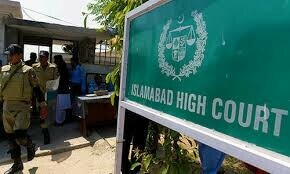ISLAMABAD, October 19: Food rights campaigners on Wednesday warned of food crises in the country which, according to them, can result in price-hike pushing about 30 million more people below the poverty line. “Act now to protect hungry and the poor from food insecurity, food vulnerability, land grabbing, denial of women’s right to land. The provinces should legislate to protect right of the people to food and acknowledge women working in fields as farmers,” was the consensus view of the participants of a conference on ‘Right to Food’ jointly organised by ActionAid, Oxfam, Journalists for Democracy and Human Rights and Kissan Ittehad.
They called upon the government to control price hike and enforce laws relating to food security to ensure that food reached to every one and restrain market forces from increasing the prices of food for corporate greed. “State has to check market excesses,” they noted.
The conference provided chance to women farmers to connect with networks of farmers and policy campaigners to ensure that women farmers have a say in national level networks.
“This will enable them to get their contributions in the farming sector recognised and be considered as the real producers of food.”
Female farmers from South Punjab demanded that they should be given land so that they could cultivate their lands and earn their livelihoods.
Speaking on the occasion, Tariq Mehmood from Pakistan Kissan Ittehad called for averting food crisis by stabilizing food production with greater investments in agricultural infrastructure to increase crop production and expand storage facilities. He urged that social safety nets be strengthened to ensure food security.
Journalist-cum-social worker Shafqat Munir said that in a country where almost half of the population (48.6 per cent) did not have access to sufficient food for active and healthy life, right to food had fast emerged as the biggest challenge.
Aftab Alam from ActionAid said that poor families in Pakistan, who already spent more than 60 per cent of their income on food, would be further squeezed for medical care and children education if food prices go up. “The impending food crisis will badly undermine recent gains in poverty reduction,” he added.
Dr Wajid Pirzada, an agriculture expert, said Pakistan recently faced three big disasters: 2005 earthquake and 2010 and 2011 floods. These natural calamities literally rendered millions of people hungry compelling them to depend on relief assistance. Floods have destroyed not only the crops but also seeds and cattle of small landholders.
A legal expert, Majid Bashir, said Article 38 of the Constitution of Pakistan says: “The state shall provide basic necessities of life, such as food, clothing, housing, education and medical relief, for all such citizens, irrespective of sex, caste, creed or race.”











































Dear visitor, the comments section is undergoing an overhaul and will return soon.